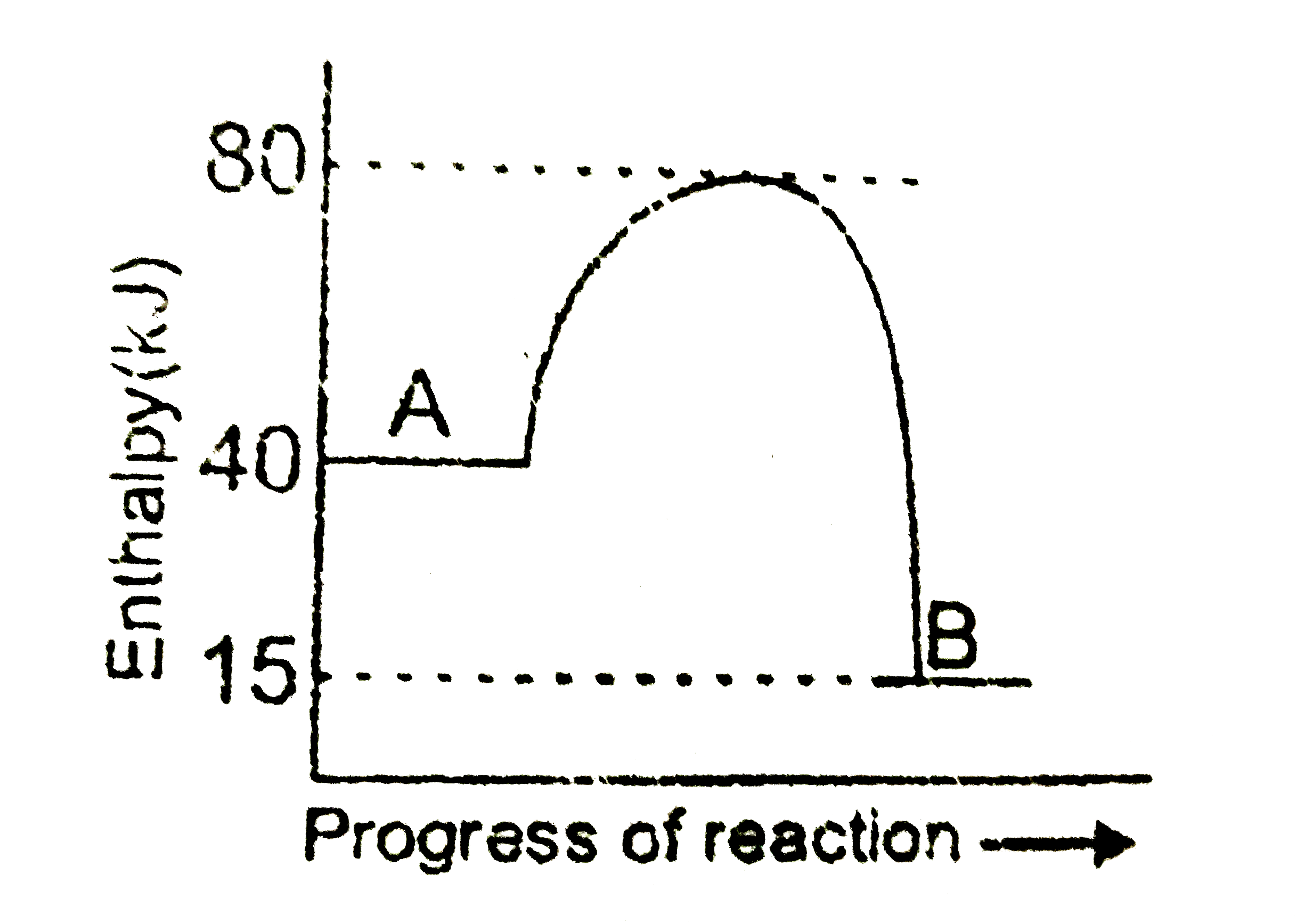In a reaction P+Q→R+S, there is no change in entropy, Enthalpy change for the reaction (ΔH) is 12 kJ mol−1. Under what conditions, reaction will have negative value of free energy change?
If ΔH is positive
If ΔH is negative.
If ΔH is 24 kJ mol−1.
If temperature of reaction is high
The correct Answer is:B
To determine the conditions under which the reaction P+Q→R+S will have a negative value of free energy change (ΔG), we can use the Gibbs free energy equation:
ΔG=ΔH−TΔS
1. Identify Given Values:
- The change in entropy (ΔS) is given as 0.
- The change in enthalpy (ΔH) is given as 12kJ mol−1.
2. Substitute the Values into the Gibbs Equation:
Since ΔS=0, the equation simplifies to:
ΔG=ΔH−T⋅0
This further simplifies to:
ΔG=ΔH
3. Analyze the Condition for Negative Free Energy Change:
We want ΔG<0. Given that ΔG=ΔH:
ΔH<0
However, since ΔH is given as 12kJ mol−1 (which is positive), we see that:
ΔG=12kJ mol−1>0
This indicates that under the current conditions, the reaction will not have a negative free energy change.
4. Conclusion:
Since ΔH is positive, and ΔS is zero, the reaction cannot have a negative free energy change under any temperature conditions. Therefore, the reaction will not be spontaneous.
Final Answer:
The reaction will not have a negative value of free energy change under any conditions given that ΔH is positive and ΔS is zero.
- The change in entropy (ΔS) is given as 0.
- The change in enthalpy (ΔH) is given as 12kJ mol−1.
Since ΔS=0, the equation simplifies to:
ΔG=ΔH−T⋅0
This further simplifies to:
ΔG=ΔH
We want ΔG<0. Given that ΔG=ΔH:
ΔH<0
However, since ΔH is given as 12kJ mol−1 (which is positive), we see that:
ΔG=12kJ mol−1>0
This indicates that under the current conditions, the reaction will not have a negative free energy change.
Since ΔH is positive, and ΔS is zero, the reaction cannot have a negative free energy change under any temperature conditions. Therefore, the reaction will not be spontaneous.
The reaction will not have a negative value of free energy change under any conditions given that ΔH is positive and ΔS is zero.
Topper's Solved these Questions
- THERMODYNAMICSBook:NCERT FINGERTPS ENGLISHChapter:THERMODYNAMICSExercise:HIGHER ORDER THINKING SKILLS
Explore 8 Videos
- THERMODYNAMICSBook:NCERT FINGERTPS ENGLISHChapter:THERMODYNAMICSExercise:NCERT EXEMPLAR PROBLEMS
Explore 11 Videos
- THE S-BLOCK ELEMENTSBook:NCERT FINGERTPS ENGLISHChapter:THE S-BLOCK ELEMENTSExercise:Assertion And Reason
Explore 15 Videos
Similar Questions
Knowledge Check
A reaction A+B→C+D+q is found to have a positive entropy change. The reaction will be
Apossible at high temperatureBpossible only at low temperatureCnot possible at any temperatureDpossible at any temperature.What will be the melting point of KCl if enthalpy change for the reaction is 7.25 J mol−1 and entropy change is 0.007 J K−1mol−1?
A1835.2 KB173 KC1035.7 KD1285.2 K
The enthalpy change of a reaction does not depend on
View SolutionA reaction attains equilibrium, when the free energy change is
View SolutionLook at the following diagram:

The enthalpy change for the reaction A→B will be
View SolutionEnthalpy of a reaction at 27∘C is 15 kJ mol−1. The reaction will be feasible if entropy is
View SolutionUnder what conditions is the heat of reaction equal to enthalpy change?
View SolutionIn the reaction A⊕+B→A+B⊕, there is no entropy changes. If enthalpy change is 20kJ of A⊕, calculate ΔG for the reaction.
View Solution

